Argan oil is a valuable and versatile oil derived from the kernels of the argan tree (Argania spinosa). This precious oil has gained global recognition for its numerous benefits, ranging from culinary uses to skincare and haircare applications. In this introduction, we will delve into a brief overview of argan oil, its historical background and origin, and its importance along with traditional uses.
Brief overview of Argan oil
Argan oil, often referred to as “liquid gold,” is a rare and valuable oil that is extracted from the nuts or kernels of the argan tree, which is native to Morocco. The oil is renowned for its rich composition of essential fatty acids, antioxidants, and various vitamins. Its unique combination of nutrients gives it a wide range of health and beauty applications.
Historical background and origin
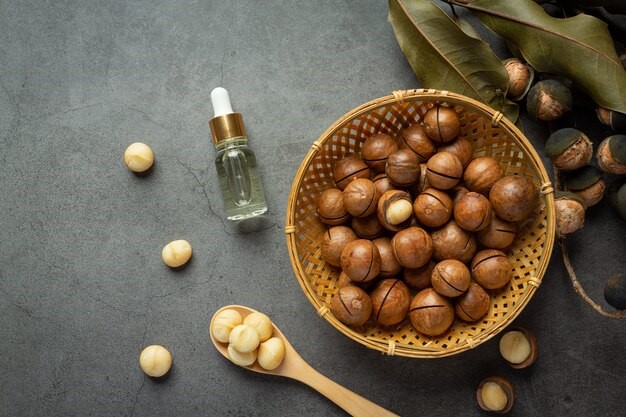
The argan tree has a deep-rooted history, primarily originating from the southwestern regions of Morocco. The Berber people, who have inhabited these areas for centuries, have played a significant role in the cultivation and extraction of argan oil. Historically, argan oil has been used by these communities for its culinary, medicinal, and cosmetic properties.
The process of extracting argan oil is labor-intensive, involving traditional methods such as hand-cracking the nuts and grinding them to obtain the oil. The cultural and historical significance of argan oil in Moroccan traditions has contributed to its global allure.
Importance and traditional uses
Argan oil holds great importance in various aspects of Moroccan culture and daily life. Traditionally, it has been a staple in the culinary world, adding a distinct nutty flavor to dishes. Beyond the kitchen, Argan oil has been employed for its medicinal properties, with applications ranging from treating skin conditions to alleviating joint pain.
In the realm of beauty and skincare, argan oil is highly valued for its moisturizing and anti-aging properties. It is often used as a key ingredient in skincare products, promoting hydration and combating the effects of aging. Additionally, argan oil has gained popularity as a hair treatment, known for its ability to nourish and strengthen hair.
As we explore further, we will delve into the specific uses and benefits of argan oil in greater detail, examining its impact on health, beauty, and overall well-being.
Argan Oil Extraction Process
The Argania spinosa, commonly known as the argan tree, is the primary source of argan oil. Native to Morocco, these trees thrive in arid and semi-arid conditions, particularly in the southwestern regions of the country. The argan tree plays a crucial role in the local ecosystem and has adapted to the challenging climate, making it well-suited for the harsh conditions of the semi-desert areas.
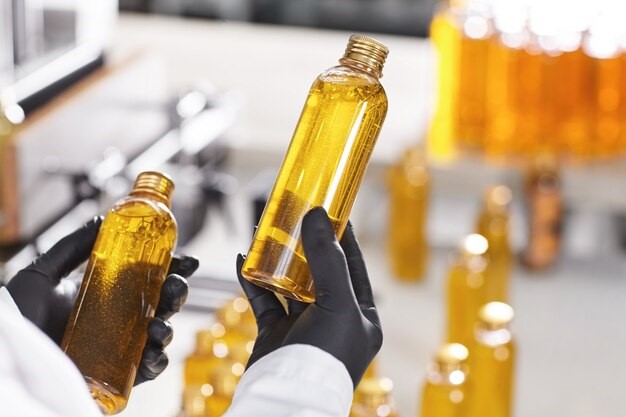
Harvesting and collection of Argan fruits
The process of obtaining argan oil begins with the harvesting of argan fruits. The fruits resemble small, yellow-green olives and have a thick peel that surrounds a hard nut. The argan fruits are harvested during the late summer months, typically from June to August, when they ripen on the trees.
Harvesting argan fruits involves a manual and labor-intensive process. Local Berber communities, particularly women, play a significant role in this stage. They gather the fruits by hand, using traditional methods that have been passed down through generations.
Traditional extraction methods
Once the argan fruits are collected, the traditional extraction process begins. The key steps in traditional argan oil extraction include:
- Fruit Drying: The collected fruits are laid out in the sun to dry. This drying process helps in removing the outer fleshy pulp, making it easier to extract the nut.
- Cracking the Nut: After drying, the hard nut is cracked open to reveal the kernels inside. This is often done by hand, using stones or tools to carefully break the shell without damaging the kernels.
- Grinding and Pressing: The extracted kernels are then ground into a paste using traditional stone mills. The paste is then kneaded, and water is added to facilitate oil extraction. The mixture is hand-pressed to extract the oil.
- Separation: The oil-water mixture obtained from pressing is left to settle, allowing the oil to separate from the water. The pure argan oil is then collected.
Modern extraction techniques
While traditional methods are deeply ingrained in the cultural heritage of argan oil production, modern techniques have been introduced to streamline the process and meet the growing global demand. Modern extraction methods often involve mechanical presses and machines to streamline the cracking and pressing stages, making the process more efficient.
However, many producers, especially those committed to preserving the authenticity and quality of argan oil, still combine traditional and modern methods. This hybrid approach aims to maintain the integrity of the oil while increasing production efficiency.
Both traditional and modern extraction methods contribute to the unique and labor-intensive process of obtaining argan oil, resulting in a product highly valued for its rich composition and diverse applications.
Composition and Nutritional Value
Fatty acids present in Argan oil.
Argan oil is renowned for its rich and diverse composition of fatty acids, which contribute to its various health and beauty benefits. The predominant fatty acids found in argan oil include:
- Oleic Acid: This monounsaturated omega-9 fatty acid is known for its moisturizing properties and is beneficial for skin health.
- Linoleic Acid: An essential omega-6 fatty acid that supports skin health, helps maintain the skin’s barrier function, and has anti-inflammatory properties.
- Stearic Acid: A saturated fatty acid that contributes to the smooth texture of argan oil and enhances its stability.
- Palmitic Acid: Another saturated fatty acid that helps improve the texture and stability of the oil.
Vitamins and antioxidants
- Argan oil is a rich source of various vitamins and antioxidants, which play a crucial role in promoting overall health and combating oxidative stress. The key vitamins and antioxidants present in argan oil include:
- Vitamin E (Tocopherols): Argan oil is particularly high in vitamin E, a powerful antioxidant that helps protect the skin from free radical damage. Vitamin E also contributes to the oil’s stability.
- Polyphenols: These compounds have antioxidant properties, helping to neutralize free radicals and reduce inflammation. Polyphenols contribute to the oil’s anti-aging effects.
- Phytosterols: These plant compounds have anti-inflammatory properties and contribute to the oil’s ability to soothe and repair damaged skin.
Other beneficial compounds
Apart from fatty acids, vitamins, and antioxidants, argan oil contains other bioactive compounds that contribute to its therapeutic properties. These include:
- Squalene: A natural compound that helps regulate oil production in the skin, making argan oil suitable for both dry and oily skin types.
- Carotenoids: These pigments contribute to the oil’s golden color and have antioxidant properties.
- Triterpenoids: Bioactive compounds that have anti-inflammatory and healing properties, contributing to the oil’s benefits for skin health.
Health and Beauty Benefits
Culinary uses and nutritional benefits
- Argan oil has been a staple in Moroccan cuisine for centuries, adding a distinctive nutty flavor to various dishes. Its culinary uses include:
- Dressing and Dipping: Argan oil is commonly used as a finishing oil for salads and couscous dishes. Its rich, nutty flavor enhances the taste of these foods.
- Cooking: In Moroccan cuisine, argan oil is sometimes used in the preparation of savory dishes, adding depth to the flavor profile.
Skincare benefits
Argan oil is a natural emollient, making it an excellent moisturizer for the skin. It is easily absorbed, helping to hydrate and soften the skin without leaving a greasy residue.
The high content of oleic and linoleic acids in argan oil helps maintain the skin’s natural barrier, preventing moisture loss.
Anti-aging effects:
- The antioxidants in argan oil, particularly vitamin E and polyphenols, help combat free radicals that contribute to aging.
- Regular use of argan oil can help reduce the appearance of fine lines and wrinkles, promoting a more youthful complexion.
Treatment for skin conditions:
- The anti-inflammatory and healing properties of argan oil make it beneficial for individuals with skin conditions such as eczema and psoriasis.
- Argan oil’s soothing effects can help alleviate itching and redness associated with various skin irritations.
Haircare benefits
Conditioning and nourishing:
- Argan oil is widely used as a hair conditioner, helping to improve hair texture and manageability.
- The fatty acids in argan oil, such as oleic and linoleic acids, penetrate the hair shaft, providing deep hydration and nourishment.
Treatment for dry and damaged hair:
- The conditioning properties of argan oil make it an effective treatment for dry and damaged hair. It helps restore moisture and repair split ends.
- Regular application of argan oil can contribute to healthier, shinier hair and a reduction in frizz.
- Incorporating argan oil into both skincare and haircare routines can offer a range of benefits, promoting overall well-being and enhancing natural beauty. Whether used in its pure form or as an ingredient in cosmetic products, argan oil continues to be valued for its versatile applications in health and beauty care.
Commercial Uses and Products
Cosmetic and Skincare Industry
Inclusion in Moisturizers, Serums, and Creams:
- Argan oil is a highly sought-after ingredient in the cosmetic and skincare industry due to its moisturizing and nourishing properties.
- Many moisturizers, serums, and creams include argan oil to promote hydration, reduce dryness, and improve the overall texture of the skin.
- The oil’s rich composition of fatty acids, antioxidants, and vitamins makes it effective in addressing various skin concerns, from dryness to signs of aging.
Argan Oil in Massage and Aromatherapy:
- The luxurious and non-greasy texture of argan oil makes it well-suited for massage oils.
- When combined with essential oils, argan oil is used in aromatherapy for its soothing aroma and skin benefits.
- The massage and aromatherapy industry often incorporates argan oil for its ability to provide a relaxing and rejuvenating experience.
Sustainability and Environmental Impact
Challenges in Argan Oil Production:
- Overharvesting: The increasing global demand for argan oil has raised concerns about overharvesting, potentially leading to the depletion of argan tree populations.
- Labor-Intensive Process: The traditional methods of harvesting and extracting argan oil involve manual labor, making the process time-consuming and challenging.
Conservation Efforts and Sustainable Practices:
- Tree Planting Programs: Conservation initiatives involve planting new argan trees to replenish and maintain the argan forest ecosystem.
- Education and Training: Local communities, especially those involved in argan oil production, are educated about sustainable harvesting practices to prevent damage to the trees.
- Cooperative Systems: Many argan oil producers operate within cooperative systems, which can implement sustainable and ethical practices. These cooperatives often prioritize the well-being of local communities and the environment.
Fair Trade and Ethical Considerations:
- Fair Compensation: Fair trade practices aim to ensure that argan oil producers, particularly the Berber women involved in the production process, receive fair compensation for their labor.
- Empowerment of Local Communities: Ethical considerations involve empowering local communities, especially women, by providing them with opportunities for education, healthcare, and a sustainable livelihood.
- Preserving Cultural Heritage: Ethical practices also focus on preserving the cultural heritage of argan oil production, ensuring that traditional methods are respected and passed down through generations.
Cultural Significance
Argan Oil in Moroccan Culture:
Historical Roots:
- Argan oil has deep historical roots in Moroccan culture, especially in the regions where the argan tree thrives.
- The Berber people, particularly Berber women, have been integral to the cultivation, harvesting, and extraction of argan oil for centuries.
Symbol of Hospitality:
- Argan oil is often associated with hospitality in Moroccan culture. It is offered to guests as a gesture of welcome and is a common ingredient in traditional Moroccan dishes served to visitors.
Economic Importance:
- The production of argan oil plays a significant role in the economy of Morocco, providing livelihoods for many families, particularly in rural areas where the argan tree is prevalent
Culinary Tradition:
- Argan oil is a key element in Moroccan culinary traditions, adding a distinct flavor to various dishes such as tagines, couscous, and salads.
The cultural significance of argan oil goes beyond its economic value, playing a role in everyday life, celebrations, and the empowerment of communities, particularly women, in the regions where it is cultivated and produced. The preservation of cultural traditions and the sustainable development of local communities are essential aspects of the continued significance of argan oil in Moroccan culture.
Argan Oil Myths and Facts
Dispelling Common Misconceptions about Argan Oil:
Myth: Argan oil is only for dry skin.
- Fact: While argan oil is excellent for dry skin due to its moisturizing properties, it is also suitable for oily and combination skin types. The oil is non-comedogenic, meaning it won’t clog pores, and its balanced composition can benefit various skin types.
Myth: All argan oil products are the same.
- Fact: The quality of argan oil can vary based on factors such as extraction methods, purity, and sourcing. Pure, cold-pressed, and organic argan oil is generally considered of higher quality for both cosmetic and culinary uses.
Myth: Argan oil can cure all skin conditions.
- Fact: While argan oil has beneficial properties for the skin, it is not a cure-all. It can help alleviate symptoms of certain skin conditions, but individuals with specific concerns should consult with a healthcare professional for proper treatment.
Myth: Argan oil is greasy and causes breakouts.
- Fact: Argan oil is lightweight and absorbs easily into the skin, leaving it moisturized without a greasy feel. When used in moderation, it is unlikely to cause breakouts, and its non-comedogenic nature makes it suitable for those prone to acne.
Clarifying Properties and Uses of Argan Oil:
Myth: Argan oil is only for external use.
- Fact: While argan oil is commonly used topically for skincare and haircare, it is also edible and used in cooking. Culinary-grade argan oil, produced through specific processes, is safe for consumption and adds a unique flavor to dishes.
Myth: Argan oil is too expensive for everyday use.
- Fact: While pure, high-quality argan oil can be relatively expensive, a little goes a long way. Due to its concentration and effectiveness, a small amount is often sufficient for skincare or haircare applications.
Myth: Argan oil doesn’t have a long shelf life.
- Fact: Pure and properly stored argan oil has a reasonably long shelf life. Dark glass bottles are often used to protect the oil from light, and storing it in a cool, dark place helps maintain its quality over time.
Myth: All argan oil smells the same.
- Fact: The aroma of argan oil can vary based on factors such as the extraction process and the region where the argan trees are grown. Some may have a mild, nutty scent, while others can have a more pronounced aroma.
Understanding the facts about argan oil can help consumers make informed choices about its use and benefits, dispelling common myths and misconceptions that may exist in the market.
How to Choose and Use Argan Oil?
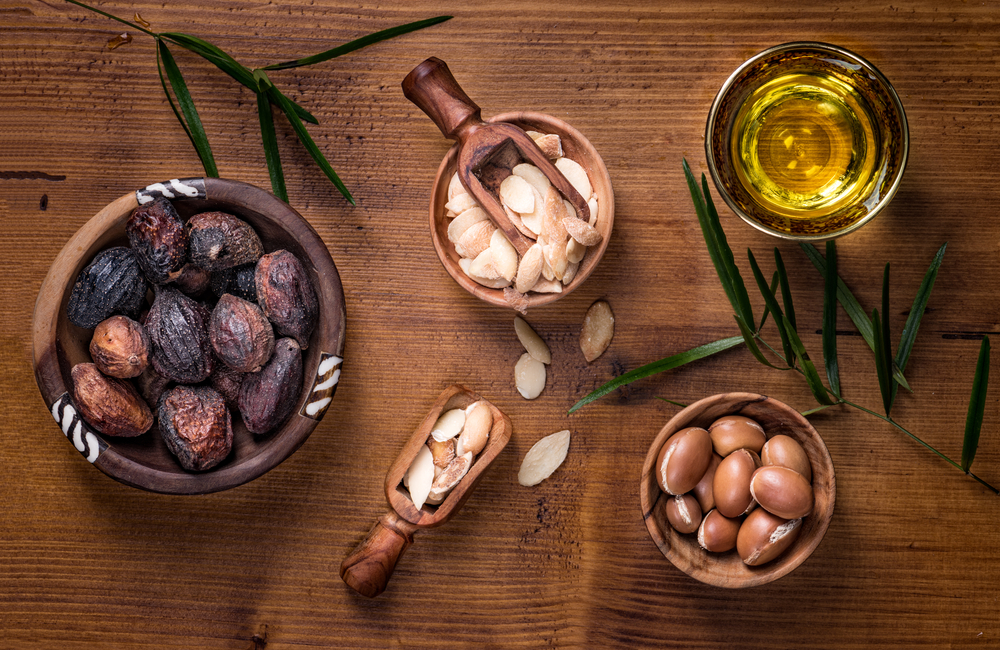
Selecting High-Quality Argan Oil:
Look for Purity:
- Choose argan oil labeled as “100% pure” or “pure argan oil” to ensure you’re getting the real, undiluted product without additives.
Cold-Pressed and Organic:
- Opt for cold-pressed argan oil, as this extraction method helps preserve the oil’s natural properties. Organic options can also be preferable, as they are produced without synthetic pesticides.
Check Packaging:
- Quality argan oil is often packaged in dark glass bottles to protect it from light exposure, which can degrade its quality. Avoid products in clear or plastic containers.
Read Labels:
- Read the product labels to ensure it is intended for the use you have in mind—whether it’s for skincare, haircare, or culinary purposes
Proper Storage and Shelf Life:
Dark, Cool Place:
- Store argan oil in a cool, dark place away from direct sunlight. Exposure to light and heat can degrade the oil over time.
Tightly Sealed:
- Keep the bottle tightly sealed when not in use to prevent oxidation and maintain the oil’s freshness.
Different Ways to Incorporate Argan Oil into Daily Routines:
Skincare:
- Apply a few drops of argan oil to clean, damp skin as a facial moisturizer. It can also be used as a night treatment to promote skin regeneration.
Haircare:
- Use argan oil as a hair conditioner by applying a small amount to damp hair, focusing on the ends. It can also be used as an overnight hair treatment for deep conditioning.
DIY Masks:
- Create DIY face masks, hair masks, or body scrubs by incorporating argan oil with other natural ingredients like honey, yogurt, or sugar.
Incorporating argan oil into daily routines requires only a small amount, and its versatility makes it a valuable addition to various aspects of personal care and culinary practices. Whether used for its skincare benefits, haircare properties, or in the kitchen, high-quality argan oil can provide a natural and nourishing touch.
Encouraging Sustainable Practices and Responsible Consumption:
Consumers play a crucial role in supporting sustainability by choosing argan oil products from reputable sources, practicing responsible consumption, and being mindful of fair trade and ethical considerations. Supporting brands that prioritize these values contributes to the long-term health of the argan oil industry and the communities it impacts.
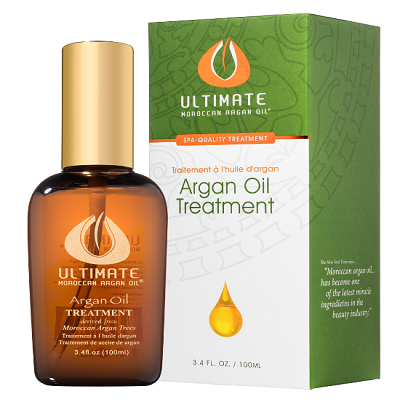
In conclusion, argan oil’s journey from traditional Moroccan practices to global recognition highlights its significance in both personal care and culinary spheres. As we move forward, a balance between commercial demand and sustainable, ethical practices is essential to ensure the continued availability of this precious oil and the well-being of the communities involved in its production.

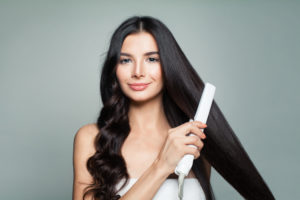

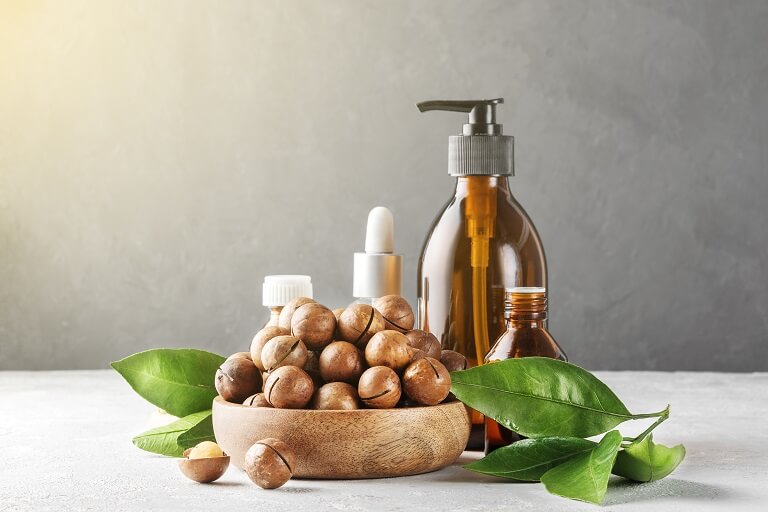
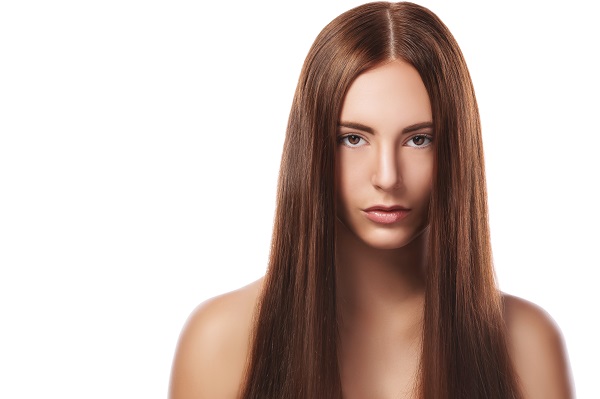
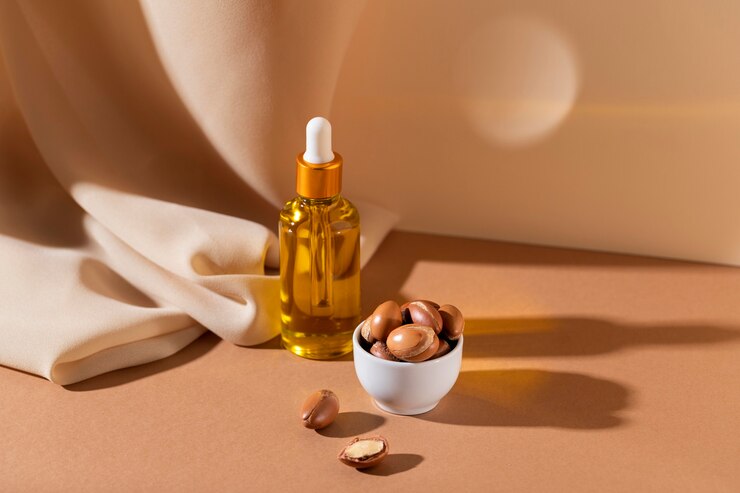


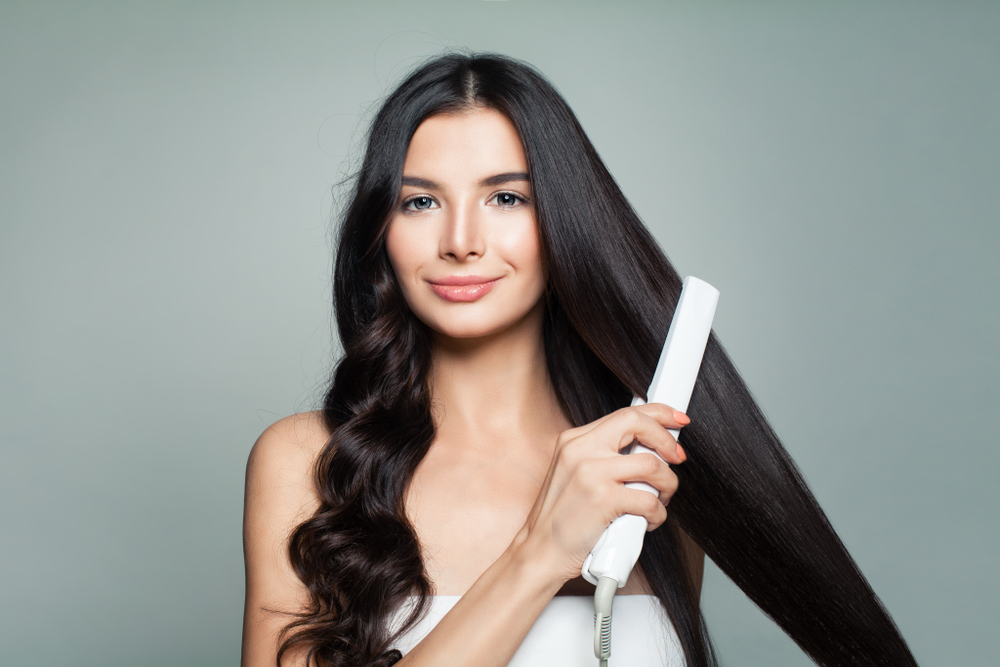



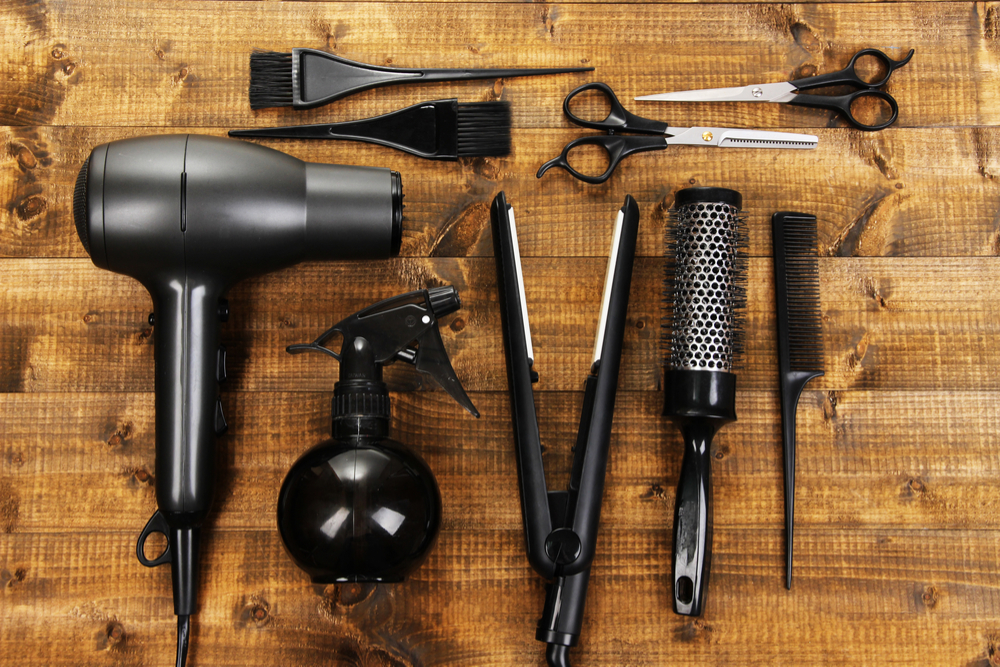



One thought on “Argan Oil – A Complete Overview”